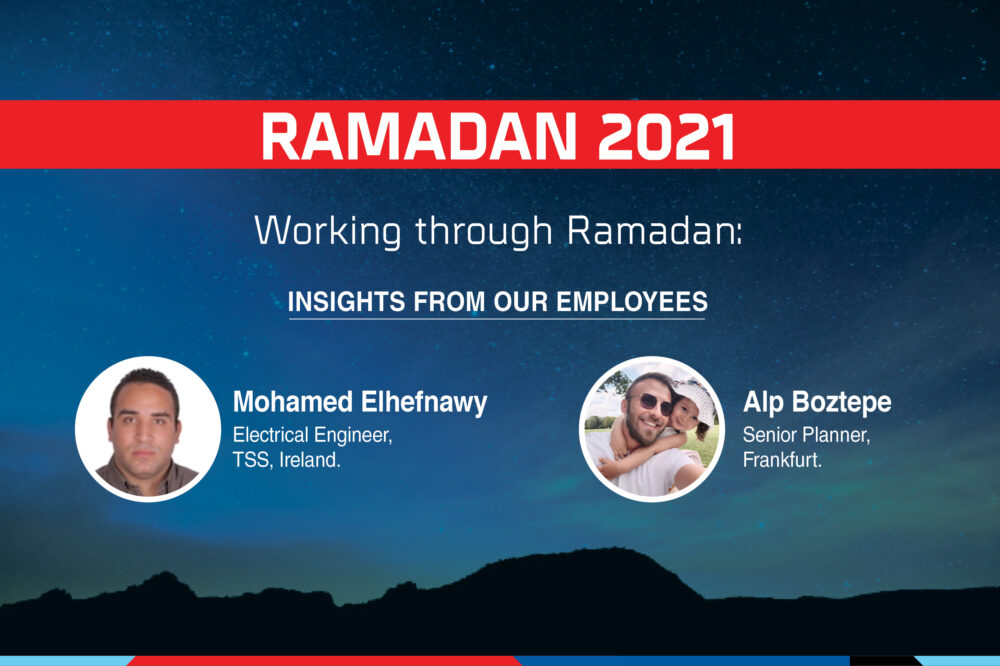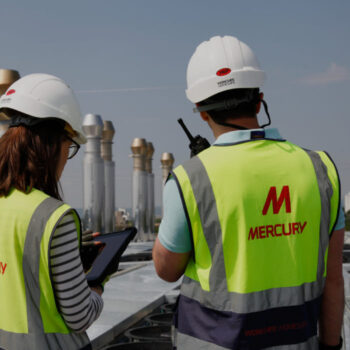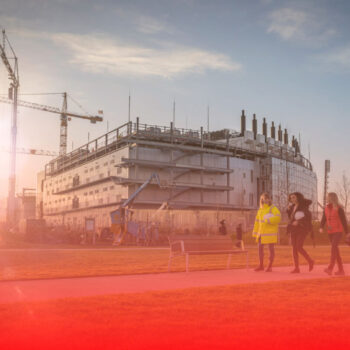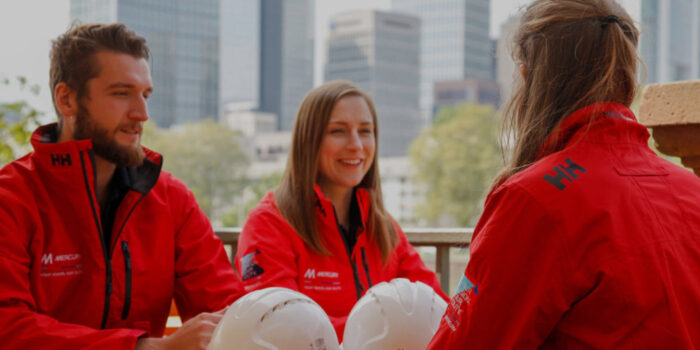Nachrichten und Einblicke

Working through Ramadan: Insights from our Employees
For over 1.5 billion Muslims across the globe, Ramadan is a month-long period of religious observance which includes fasting from sunrise to sunset for a total of thirty days. Ramadan began on April 13th this year and will end tonight on May 12th, culminating in the breaking of the fast in a festival known as Eid al-Fitr.
Fasting is observed between sunrise and sunset which can last between 11 and 16 hours depending on location and is complemented by special prayers which take place throughout the day. This act of worship enables Muslims to feel closer to God and can strengthen their spiritual health and self-discipline.
We interviewed two of our employees who are observing Ramadan, asking how our colleagues can understand and support them as they observe this religious festival at work.
Mohamed Elhefnawy, an Electrical Engineer for Mercury’s Technical Support Services (TSS) team on a Technology project in Ireland, and Alp Boztepe a Senior Planner based on a Data Centre project in Frankfurt, Germany shared their insights with us.


Almost two billion Muslims take part in Ramadan every year, but in some parts of the world, there are people who don’t know much about it. Can you tell us, what is Ramadan?
Mohamed: Ramadan is the Arabic term used to describe the ninth month of the Islamic calendar.
Alp: Ramadan is the most sacred month of the year and Muslims must not eat or drink between dawn and sunset as well as refraining from using bad language or engage in forbidden activities such as drinking alcohol, gambling etc. At the end of Ramadan, three days of celebration are marked with family gatherings, known as Eid ul-Fitr. Along with breaking their fasts, Muslims also make charitable donations to those in need during this period.
Why do you take part in Ramadan?
Mohamed: Ramadan is one of the Five Pillars of Islam. These are five principles that Muslims believe are compulsory acts ordered by God. It is our belief that fasting allows participants to feel closer to God and strengthen their spiritual health and self-discipline.
Alp: Fasting allows Muslims to devote themselves to their faith and to come closer to Allah or God. The Five Pillars of Islam form the basis of how many Muslims live their lives.
Are there any challenges associated with fasting while working in the construction industry?
Mohamed: It can sometimes be a challenge to manage energy levels due to getting less sleep and only being able to eat during certain times. When physical energy is low it can be difficult to engage in tiring activities. Lastly, there are challenges in relation to time management. The normal routine of a Muslim is completely turned upside down during the month of Ramadan. Between waking up before dawn and staying up late, as well as getting involved in extra community and spiritual activities, there are a number of time constraints that do not affect a Muslim during a typical month.
Alp: Definitely yes! That’s why I am fasting for one day and not fasting another day. I am doing half on, half off to ensure that my work performance is not affected. Fasting during work can decrease your performance by 60-70% and cause low concertation. If working hours were lower than in other months, I would be able to fully fast for the entire month.
Do you notice any benefits when fasting?
Mohamed: There are a number of benefits to fasting. It can help to establish a regular eating pattern and is proven to improve blood pressure levels, lower cholesterol levels and reboot the immune system. Fasting also strongly supports insulin resistance which can enhance learning, memory and elevates your ability to focus and concentrate in the long term.
What can we all do to help colleagues who are fasting and taking part in Ramadan?
Mohamed: By increasing awareness and training. Muslim colleagues must prepare for Ramadan spiritually, physically, and socially to ensure they can balance all of their personal commitments along with maintaining their professional performance. By educating all employees about the challenges facing Muslims during Ramadan, we can understand more about each other and learn how an individual’s personal and spiritual life might affect their work performance.
Alp: During Ramadan, colleagues should try to be mindful and try to understand that due to tiredness and lower concertation levels that there may be a reduced level of performance, particularly in the later parts of the day when it has been a long time since a previous meal. It would be great if working hours were decreased for Muslims or if there was an option to work from home a little more during this period.
What are your plans for Eid al-Fitr tonight?
Mohamed: To be honest, this year I don’t have big plans for Eid – due to the pandemic, but other years, generally I would wake up in the morning, dress the kids with the new clothes and take them to Eid prayer, then after that we all gather as a family. We’d have breakfast together and then go out to an open place where we can have dinner and meet more family & friends.
Alp: We held a special morning prayer and breakfast with all family members. We will be greeting each other with “Eid Mubarak,” meaning “Blessed Eid” for 3 days starting from today. Nearly all families are visiting each other and having lunches & dinners together, but unfortunately, the current pandemic will not allow it, so it will probably happen remotely this year. We will have also sweet dishes which are already prepared at home and gifts will be given to children during these days.
Like Mercury on Facebook.
Follow us on LinkedIn, Twitter, and Instagram.


